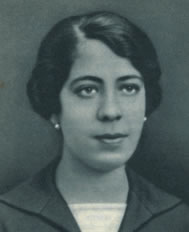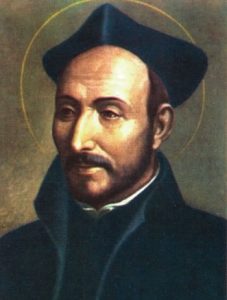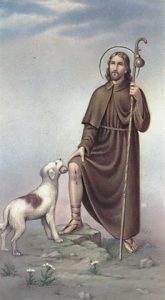August Saints
 Blessed Victoria Diez Y Bustos De Molina (1903-1936)
Blessed Victoria Diez Y Bustos De Molina (1903-1936)
Blessed Victoria Diez Y Bustos De Molina was born in Seville, Spain, the only child of a deeply Christian family of modest means. She studied to become a teacher, while attending art classes at the School of Arts and Crafts in Seville. She had many fine human qualities and a deep faith expressed in an intense spiritual life. Early on, she felt drawn to making a radical commitment to God, eventually joining the Teresian Association in Seville.
Her first teaching assignment was at Cheles, a small town near the Portuguese border. When she asked for a transfer to Seville so she could help her family, the new assignment was to Hornachuelos, where she lived and taught until her death.
A competent and dedicated teacher, Victoria wholeheartedly supported the parish priest in all the tasks of evangelisation: Catholic Action, catechesis, the Eucharistic apostolate, adult education. Her charity, especially towards the most needy children in the class, was apparent to everyone. It was obvious that the she did without necessities in order to give to others.
Throughout these years, Victoria lived in profound communion with the Teresian Association, whose founder directly inspired and formed her vocation. The secret of her apostolate was her closeness to God: ‘Praying before the Blessed Sacrament I find strength, courage, light, and all the love I need to help those entrusted to me on the way of salvation,’ she wrote.
The difficult circumstances that arose in 1936 at the start of the Spanish Civil War led to an open attack on the Church in Hornachuelos. At nightfall on 11 August, Victoria and 17 others were taken to the town hall and later to a house set up as a prison. She remained calm, quiet and prayerful, encouraging her companions to remain faithful: ‘Come on,’ she said, ‘our reward is waiting for us!’ At daybreak, all 18 were escorted to an abandoned mine shaft at Rincón and cruelly martyred. Her final words were ‘Long live Christ the King!’
Blessed Victoria, help us to be deeply committed to our faith, even to death.
(Source: Internet – various)
Peter Faber was born at Villaret, Savoy. As a child he tended his father’s sheep. His education was undertaken first by a priest at Thônes, then a neighbouring school. In 1525 he arrived in Paris where, admitted gratuitously, he became a good friend of Saints Francis Xavier and Ignatius of Loyola.
Ordained in 1534, Peter received, that same year, the vows of Ignatius and his five companions. After Ignatius, Faber was the one whom the Jesuits considered, by reason of his profound knowledge, gentle sanctity, and influence over souls, the most eminent.
After some months of preaching and teaching in Rome, the pope sent him to Parma and Piacenza, where he brought about a revival of Christian piety. Recalled to Rome, Faber was sent to Germany to uphold Catholicism at the Diet of Worms. Obedience sent him to many parts of Europe, and everywhere he inculcated fervour and implanted the seeds of vocations among the young. In Spain and Portugal, he was considered an angel of God.
Faber, at forty, was wasted by his incessant labours and his unceasing journeys, always made on foot. The pope, however, thought of sending him to the Council of Trent as theologian of the Holy See. Called to Rome, Faber, weakened by fever, arrived there 17 July, 1546, to die in the arms of St. Ignatius.
Saint Peter, fill us with zeal for the spreading of the faith.
(Source: http://www.newadvent.org/cathen/11767a.htm)
Saint Roch was a French noble who early on developed a sympathy for the poor and sick. He was reported to have been born with the image of a red cross on his breast. At the age of 20, with both his parents having died, he gave his fortune to the poor, and became a mendicant pilgrim.
While on pilgrimage, Roch encountered an area afflicted with plague. He stayed to minister to the sick, and effected several miraculous cures, usually by making the sign of the cross over the sick person, but contracted the plague himself. He walked into a forest to die, but was befriended by a dog, which fed him with food stolen from his master’s table, and Roch eventually recovered.
When Roch returned to Montpellier, France, he was arrested for being a spy. He languished in jail for five years, never mentioning his noble connections.
Saint Roch, protect us from pestilence of body and soul.
(Source: http://catholicsaints.info/saint-roch/)


 Entries(RSS)
Entries(RSS)